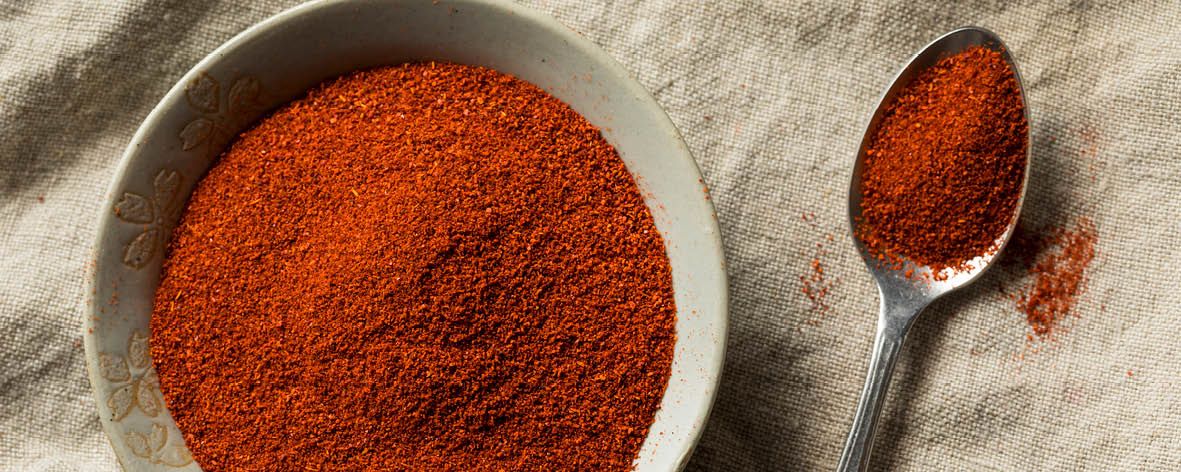Sweet, smoked or hot … it’s time to learn about paprika

OK confession time, when you see a recipe that says “smoked paprika” or “hot paprika” do you just grab whatever type is in your pantry and throw it in? If you do, you certainly are not alone because most people think that paprika is paprika is paprika. I mean why would you bother keeping three versions of the same spice in your pantry? Well, guess what? There actually is quite a bit of difference between the types of paprika. Read on to learn more.
Paprika is a ground spice made from dried capsicums. It is the national spice of Hungary, where it plays a starring role in goulash. There are actually not three but eight different grades of paprika, that vary in both heat and flavour. Commonly though there are three varieties that are readily available – sweet, smoked and hot.
Sweet paprika has a sweet, peppery flavour without any heat. It is commonly used as a garnish for salads and devilled eggs and it is great for adding to rubs for meat or chicken or adding to rice to season and colour it. It is also perfect for the classic Hungarian Goulash if you don’t like things too spicy. If a recipe doesn’t specify which type of paprika, this is the safest option to use.
Smoked paprika, as its name suggests, offers a delicious smokiness as it is made from peppers that are smoked and dried. Although smoky in flavour, it is not hot (unless you buy a hot, smoked variety). Smoked paprika is perfect for adding a depth of flavour to paella, stews, soups, casseroles, pizza and pasta. Smoked paprika is also commonly referred to as Spanish paprika.
Hot paprika is, unsurprisingly, hot. Also known as Hungarian paprika, a little goes a long way so use it sparingly to spice up dishes. It has a peppery, spicy flavour that will bring a fiery kick to dishes.
Irrespective of which type of paprika you use, here’s a tip … add it near the end of your dish’s cooking time. The reason is that both the colour and flavour of paprika diminish with cooking, so to retain its vibrancy resist adding it in too early.

